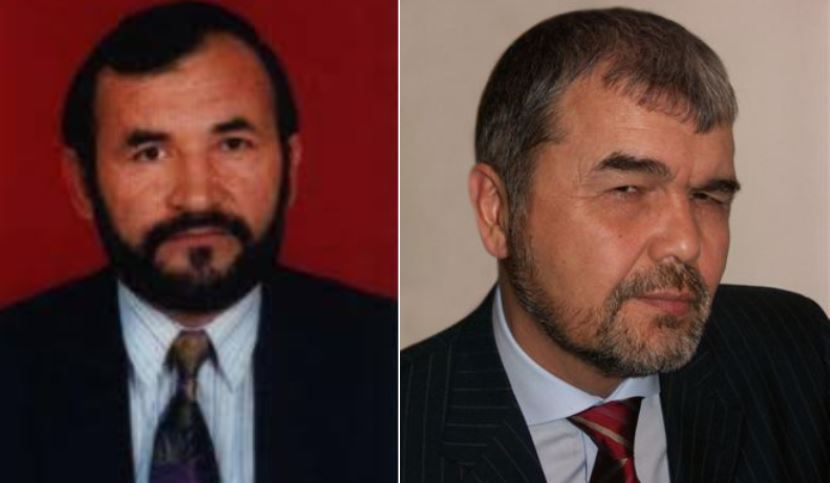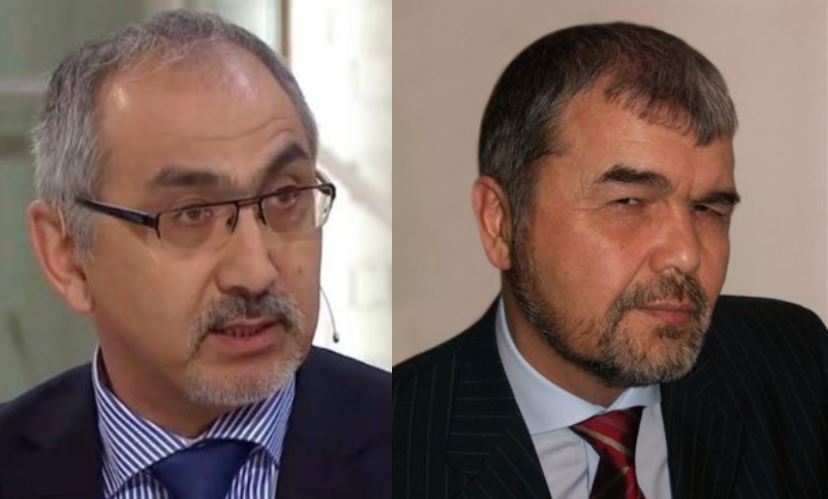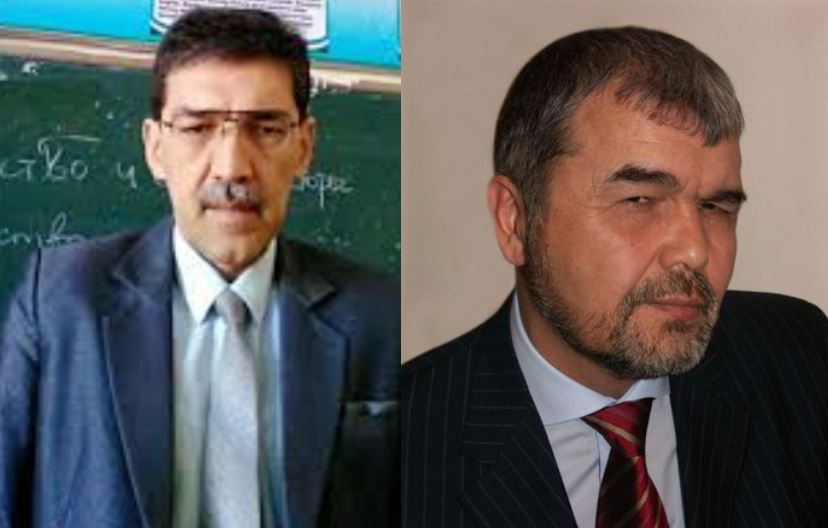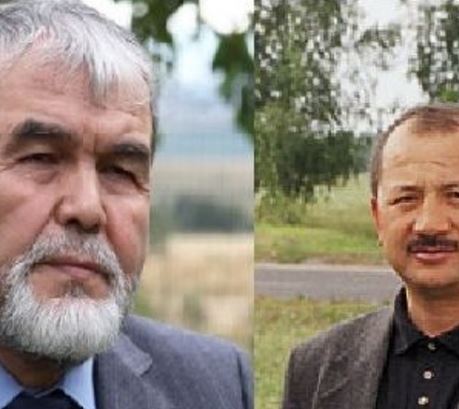With the help of ACAT – France, the human rights organization based in France, our editors have found new details about fates of 29 Uzbek refugees, who were extradited from Kazakhstan to Uzbekistan in 2011.
In late January of this year human rights organization ACAT – France (Association of Christians Against the Death Penalty and Torture), based in Paris, has provided information to a number of international human rights organizations about statements of the Prosecutor General of Kazakhstan that were sent to the UN High Commissioner for Human Rights on November 8 last year in relation to the decision of the UN Committee against Torture on extradition of 29 persons to Uzbekistan, adopted at the 48th session on June 1 2012.
A bit of background information – These extradited persons were Uzbek refugees, ordinary Muslims, who were persecuted by the Uzbek security services for their religious beliefs, and who had to flee to Kazakhstan in search of asylum. However, in the summer of 2010, they all were arrested in Almaty at the request of the Prosecutor General and Interior Ministry of Uzbekistan.
The Uzbek authorities accused them of committing grave crimes, such as terrorism, creation of and participation in extremist, separatist, fundamentalist or other banned organizations, murder, as well as organizing and participating in a criminal association and other crimes. The refugees themselves denied all these allegations.
All 29 refugees were held in detention centers in Almaty for one year, and had been extradited to Uzbekistan in 2011. There, many of them were sentenced to long prison terms.
In June 2012, the UN Committee against Torture ruled that Kazakhstan breached its international obligations in the field of human rights by sending Uzbek refugees back to Tashkent. Since many respected international human rights organizations have repeatedly stated that torture and inhuman treatment in prisons and detention centers of Uzbekistan is systematic and widespread.
The UN Committee against Torture demanded that the Kazakh authorities provide appropriate protection to all of the 29 extradited Uzbek refugees, including their return to Kazakhstan, and financial compensation.
At the end of last year, “Jarayon”, referring to its source in Uzbekistan and to the statements of several spouses of the extradited refugees, reported that the government of Kazakhstan sent a special envoy to Uzbekistan, who met with some of the extradited refugees in prison.
The extradited refugees told their families that they were subject to severe torture in prisons, and their detention conditions remained harsh.
“The representative of Kazakhstan asked them whether they were subjected to torture in Uzbekistan. But the Uzbek side warned the refugees, saying that “if you complain, blame on yourself.” Therefore, all 29 people were forced to say that were not tortured or ill-treated,” said “Jarayon”s source then.
However, these people asked their families to pass their complaints to the UN Committee against Torture.
In its statement, the Prosecutor General of Kazakhstan reported that in the period from August 3 to 14 of 2012, the representatives of the Kazakh Foreign Service met with 18 of 29 extradited refugees, who are serving sentences in prisons in different regions of Uzbekistan.
“The purpose of these meetings was to clarify the situation regarding the rights of prisoners, their conditions, the possible use of illegal measures against them, such as physical or psychological pressure during the investigation, trial and punishment, and complaints regarding the use of torture and other cruel, inhuman or degrading treatment or punishment, ” reads the statement of the Kazakh Prosecutor General’s Office.
Prosecutor General’s Office gave a list of extradited persons whom the representative of the Kazakh diplomatic service visited in prisons. They are: Sulaimanov Tursunbai, Shodiev Akmalzhon, Abdusamatov Toirzhon, Gulyamov Mukhitdin, Nurillaev Bakhtiar, Nurillaev Bahriddin, Talipov Sirojiddin, Kuldashev Oybek, Hurramov Sarvar, Sharipov Otabek, Botirov Shukhrat, Kurbanov Kobiljon, Bazarov Sukhrob, Yakubov Abduazimhuzha, Khashimov Alisher, Turaev Ravshan, Pardaev Isobek and Umarov Fayziddin.
The Prosecutor General’s Office also reported that the meetings with seven (Akbarov F.K, Boltaeva A.A., Kasymov A.M., Ostonov V.H., Holturaev O.M., Karimov D.D., Holboev S.B.) of 29 extradited refugees were postponed to a later date at the request of the Uzbek side in relation to the investigation work being held on their cases. Three other persons (Yuldoshev M.F., Pulatov O.A., Rakhmatov U.E.) were sentenced to penalties other than imprisonment, and in the case of Zhalolhonov S.T. the charges were dismissed due to the amnesty. “Meetings with abovementioned persons were not held given they were not kept in detention,” read the statement.
According to the prosecutor’s office, the imprisoned persons, whom the representative of Kazakhstan met with, did not complain that the Uzbek law enforcement agencies used torture, physical or psychological pressure, or other unlawful methods of investigation against them during the investigation and trial of criminal cases.
“Each of them was given a lawyer. In addition to this, they were allowed to hire private lawyers along with ones provided. Prisoners did not have any complaints to maintenance conditions, nutrition, and health care. At the end of each meeting the convicts made a written statement to the Committee, confirming their expressed opinions.
Additionally, diplomats requested an examination of prisoners for possible signs of beatings and torture. No traces of injuries were found. The meetings also showed that all prisoners, according to the internal procedures, are regularly visited by their relatives, they receive parcels, food packages, ” writes the Kazakh Prosecutor General’s Office in its report sent to the Office of the UN High Commissioner for Human Rights.
“Jarayon” obtained copies of statements of 18 extradited refugees that were sent to the UN Committee against Torture, in which they unanimously write that do not have any complaints on the conditions in Uzbek prisons. Also, all 18 of them write that they were not applied any torture, beatings, or mental pressure in the course of the preliminary investigation and court proceedings.
One of the extradited refugees, Kurbonov Kobiljon, wrote in his statement to the UN Committee against Torture: “I love my country – Uzbekistan.”
It should be noted that the text of all applications is the same. Therefore, one can form an impression that the text of these statements has been prepared in advance by the Uzbek law enforcement bodies, and were re-written by extradited persons on dictation.
Mutabar Tadjibayeva, head of the International Human Rights Organization “Fiery Hearts Club”, is of the same opinion. She, like many human rights activists, who have access to documents of the General Prosecutor of Kazakhstan, questions the information proved by the Kazakh side on the situation of extradited refugees.
“We all know that the prisoners in Uzbekistan do not have any rights. Kazakh officials were aware of the fact that the prisoners, who were wrongly extradited to Uzbekistan and sentenced to many years, were tortured in prisons. They met with prisoners in Tashkent prison (in the #1 detention center in Tashkent).
But before the meeting, the Uzbek law enforcement bodies forced all 18 persons to sign false statements and forward them to the Committee against Torture. By this act, the government of Kazakhstan not only covers, but also becomes an accomplice in crimes committed by the government of Uzbekistan,” says Tadjibayeva.
According to Tadjibayeva, at the moment “Fiery Hearts Club” is working on the initiative to introduce the issue of paying compensations to 29 Uzbek refugees illegally sent to Uzbekistan to the agenda of the UN Committee on Human Rights, where Kazakhstan has become a member. Tadjibayeva hopes that the respected international human rights organizations will support this initiative.
“In addition, we restore the activities of the “Committee for the Protection of Refugees in Kazakhstan”, which was originally established to protect the 32 Uzbek refugees extradited to Uzbekistan. We aim to provide comprehensive assistance to their families, inform the international community about the problems of these people, as we shall protect Uzbek refugees, who were forced to leave their homeland and are suffering abroad. Soon, the “Committee for the Protection of Refugees in Kazakhstan” will be officially registered and will start its activities, “- concluded Mutabar Tadjibayeva.





